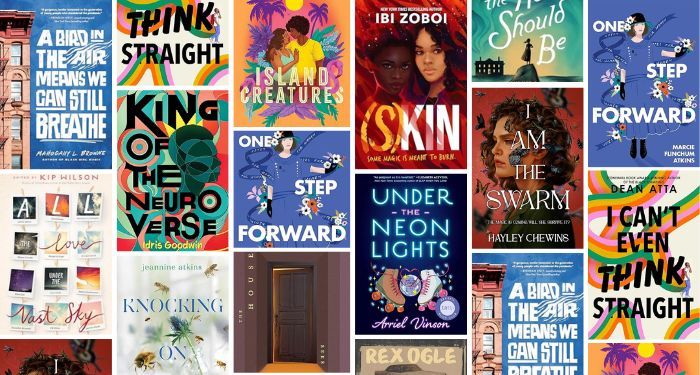Welcome to Today in Books, our daily round-up of literary headlines at the intersection of politics, culture, media, and more.
The Women’s Prize for Fiction Shortlist
The shortlist for the 30th Women’s Prize for Fiction has been announced! The list of six features four(!) debut novelists. Here are the shortlisted book: Good Girl by Aria Aber (Bloomsbury Publishing), All Fours by Miranda July (Canongate Books), The Persians by Sanam Mahloudji (4th Estate, HarperCollins), Tell Me Everything by Elizabeth Strout (Viking, Penguin General, Penguin Random House), The Safekeep by Yael van der Wouden (Viking, Penguin General,Penguin Random House), and Fundamentally by Nussaibah Younis (Weidenfeld & Nicolson, Orion Publishing Group, Hachette). The winner will be announced on June 12, 2025 along with the winner of the 2025 Women’s Prize for Non-Fiction. The Fiction prize is awarded “for the best full-length novel of the year written in English and published in the United Kingdom between 1 April 2024 and 31 March 2025,” with the winner receiving £30,000.
Goodbye, NaNoWriMo
I learned I could write a novel from start to finish because of National Novel Writing Month, so it saddens me to report that the 25-year-old nonprofit that challenges any and all writers to write a novel from start to finish in the span of one month is shutting down. The nonprofit has seen some financial challenges in recent years, and their situation wasn’t helped by some controversies, including alleged content moderation shortcomings that created an unsafe environment for younger participants as well as NaNoWriMo’s stance on AI, which has been in the headlines for lawsuits brought by authors and other creatives around copyright and intellectual property infringement. I have to say, I get that it’s really hard to run and support a nonprofit, but I found their spokesperson’s statement that, “Too many members of a very large, very engaged community let themselves believe the service to be provided was free,” to be cringe. It smacks of passing on the blame.
Transform your reading experience! Become an All Access member and unlock a treasure trove of exclusive content—must-read articles, deep dives, and curated recommendations—with unlimited access to 20+ members-only newsletters, community features, and more. Sign up now for only $6/month!
Don’t Call Merlin Dusty
Even if he made his comeback by way of a 16th-century archival register. The fragment of a 13th-century manuscript of Arthurian stories was found in said register, which was housed at Cambridge University Library. Can you imagine repurposing a Merlin/King Arthur manuscript for something as boring as a cover for a property record? FOR SHAME. The fragment joins a mere 40 surviving manuscripts of Suite Vulgate du Merlin, a sequel to the legend of King Arthur. Its recycling has made its recovery a challenge, but creates an interesting challenge for the library:
What followed the discovery has been a ground-breaking collaborative project, showcasing the work of the University Library’s Cultural Heritage Imaging Laboratory (CHIL) and combining historical scholarship with cutting-edge digital techniques, to unlock the manuscript’s long-held secrets – without damaging the unique document.
South Carolina Postpones Vote on Banning 10 Books Statewide
South Carolina’s State Department of Education put 10 books on the table for removal, but “a robust discussion about the unintended consequences of such decisions–and the abuse of the process that has imbued one parent in one county with outsized power to ban books across the state” delayed the vote. Find out which books were up for banning and learn more about the decision here.











 Bengali (Bangladesh) ·
Bengali (Bangladesh) ·  English (United States) ·
English (United States) ·
What are you reading? Let us know in the comments!